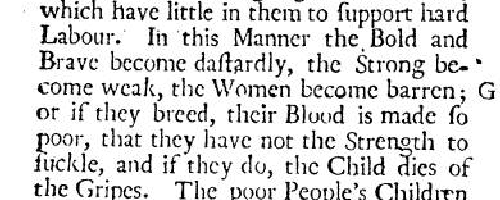Bewitch'd With Indian Poyson
Relznuk asked me a while ago to contribute a guest post here. I was only too happy to oblige, but things got really busy. So now, after much procrastination and numerous delays, I am pleased to finally contribute the first (of what I hope will be several) guest posts. The following is cross-posted on Tea. Uncomplicated, a blog by The Simple Leaf.
It's safe to say that not everyone was thrilled with the increasing popularity of tea during most of the seventeenth and eighteenth centuries. In Britain, a slew of commentators were pointing out the evils of this newly discovered beverage.
This particularly poignant passage bemoans the effect of tea on the British national psyche. It appeared in The Gentleman's Magazine in 1737, under the title Observations on the effects of tea.
[read the full archived version]
Tea is utterly improper for food hitherto useless in physick, and therefore to be arranged among the poysonous vegetables. Were it entirely wholesome as balm or mint, it were yet mischief enough to have our whole populace used to sip warm water in a mincing and effeminate manner once or twice a day. . . In this manner the bold and brave become dastardly, the strong become weak, the women become barren; or if they breed, their blood is made so poor that they have not the strength to suckle, and if they do, the child dies of the gripes. The poor people's children which are bred with it, as they really are in the cities and towns, are only fit for footmen and chambermaids. . .I leave any one to judge what soldiers we are like to have. The Spaniards very likely had felt the force of English beer within the last 20 years, if the use of it had not been exchanged for warm water bewitch'd with Indian poyson.
For further exploration into the history of tea, I would urge you to check out Roy Moxham, Tea: Addiction, Exploitation and Empire (New York: Carroll and Graf, 2003). I'm halfway through this book — every page has nuggets of fascinating trivia interspersed with tea's rich history. Well worth checking out.




0 Comments:
Post a Comment